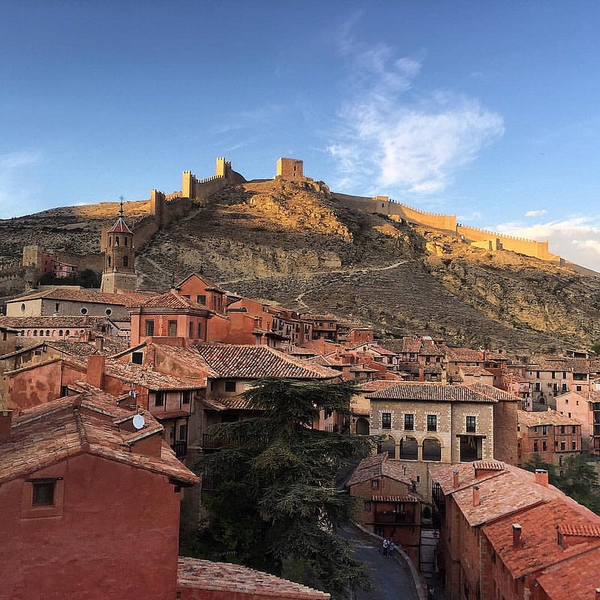Alma Natura, has a passion and dedication to the preservation and empowerment of rural communities. With only 20 percent of Spain’s population living in small communities and most being aged 65 years or older, it is vital to revitalize these communities not only to stave off displacement due to the lack of resources and opportunities, but also to prevent negative ecological impacts. Co-founders Juanjo and Israel Manzano were aware of the hardships present in their rural communities and were motivated to create a social enterprise devoted to ameliorating and revitalizing rural communities. Impakter had the opportunity to reach out to Juanjo Manzano on Alma Natura’s mission, dedication, services, and goals moving forward reaching those who need help the most.
Impakter: Hi Juanjo, thank you for speaking with us. Can you tell us how you got to where you are at Alma Natura?
Juanjo Manzano: Sure! In 1997 my brother, Israel, and I became worried about the lack of alternatives in our rural community. From a young age we were aware of the hardships our neighbors felt about life in the rural world and the problems that came with it. Mainly the vulnerability and lack of resources of the local population to carry out their agricultural livelihood. The efforts and determination these families show to this day to remain in their villages despite these local hardships and the incentives of our globalized world, motivated us to create an organization that revalued rural life with the purpose of improving and preserving the rural community. We began offering activities to the community in order to promote social cohesion and active tourism. Since then, with an innovative evolution along the way, we have been offering various services of social empowerment throughout rural Spain.
So, what exactly is Alma Natura?
J.M: Alma Natura is a social enterprise, meaning it’s not only concerned with profit, but with solving a social and/or environmental issue. In our case, we design experiences of transforming learning with the aim of empowering the population of a rural community. The team creates new ideas that cover social needs of rural territories and since 2013 we have become the first Spanish company certified internationally as a B Corporation. In 2016 in fact, we became one of the “best companies for the world,” according to B Lab.
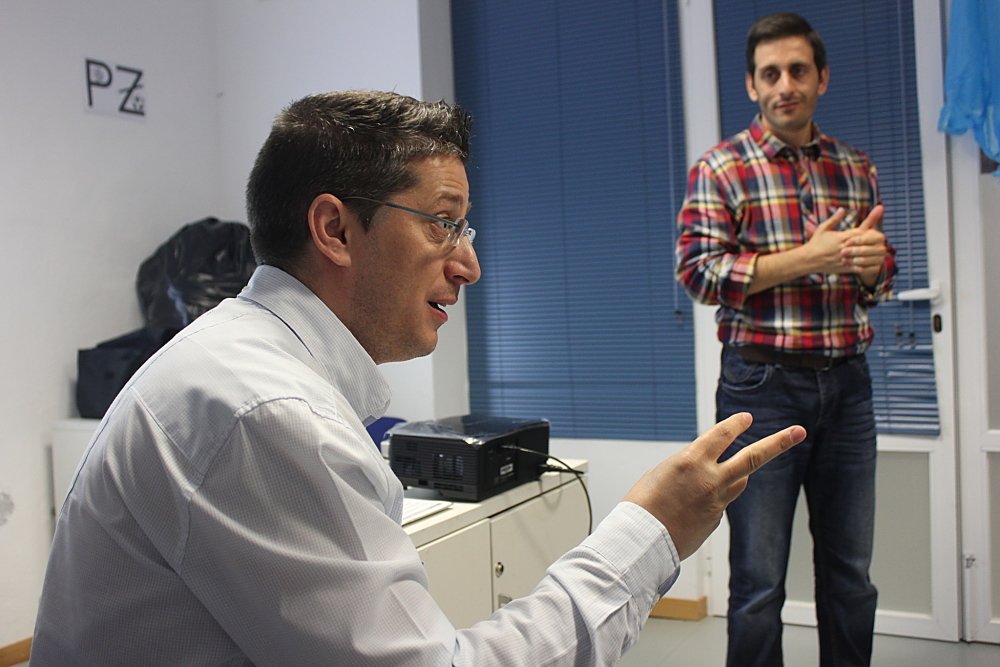
IN THE PHOTO: Cofounders Juanjo (left) with his brother Israel (right), PHOTO CREDIT: Alma Natura
What problem do you want to solve in the rural world?
J.M: Urbanization has serious consequences. It tears apart century old rural communities and encourages displacement due to the inequality of resources available compared to cities. Moreover, this phenomenon leaves territories like the Mediterranean forests abandoned which can have environmental impacts like fires and loss of forest mass. The result is that the positive ecological impact of the rural world decreases. Alma Natura proposes a “reactivation” of rural areas through the implementation of projects that bring opportunities to rural municipalities so that people don’t have to leave their village. In the short term, we develop projects that improve the individual attitudes and habits of citizens, as well as identify additional shortcomings that require further work. For these we propose actions with specific collaborators (like the private sector, NGOs etc). In the long term we aim to replicate our methodology by training rural development managers who can do similar work in other rural communities.
Who exactly needs these services?
J.M: Our services are directed especially to rural citizens. Vulnerable people who are living in rural areas of Spain and Latin America and need employment training, digital literacy training and other forms of personal development to improve their competitiveness. And we are getting results! if you want to see our latest results you can go here (in Spanish).
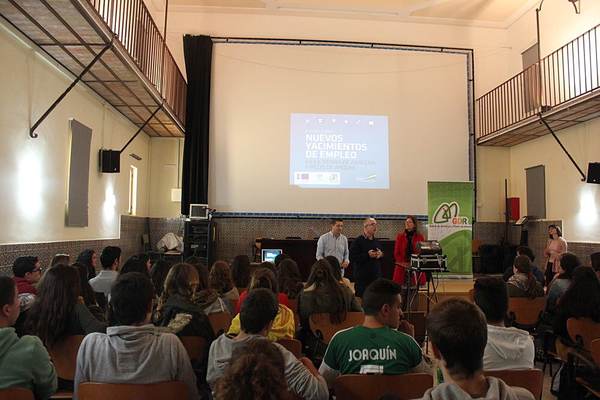
IN THE PHOTO: Lecture on rural employability in Sierra de Aracena, PHOTO CREDIT: AlmaNatura
What kind of services does Alma Natura offer?
J.M: We offer multiple services to our clients (which are mainly rural municipalities). Amongst them, we create co-working spaces available to local entrepreneurs, personal mentoring sessions, digital learning classes, workshops on personal health and environmental attitudes and others. You can find a whole list on our website.
Related article: “SHAPING THE FUTURE OF OUR CITIES“
As a publication, we are interested in the effects of business experiences on people who take the risk of innovating. Could you tell us some difficulties and some positive moments that you had during the development of Alma Natura?
J.M: The main difficulty was the environment where we developed – quite depressed and with a few innovative public services. We did not have spaces for coworking, nor a meeting place for social entrepreneurs. Moreover, today social entrepreneurship remains a strange case of entrepreneurship little understood by the organizations that help entrepreneurs. On the other hand, our differences were our greatest strengths. That is, being away from centers of innovation made us focus on our purpose and made us more productive and innovative in linking the needs of the rural environment with potential customers. The rural world allowed us to concentrate on the task without getting confused with the photos and the excess events that sometimes inhabit the urban areas. Another positive element was the trust deposited by our parents and the capacity for resilience transmitted by them to continue here after 20 years.
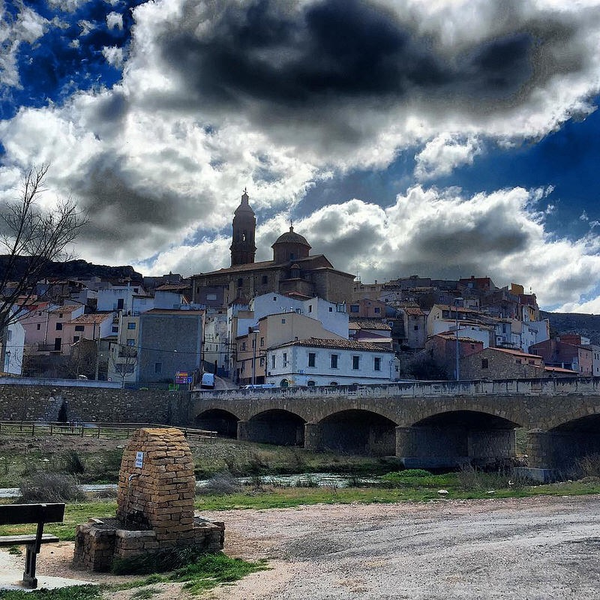
IN THE PHOTO: Spanish municipality of Oliete in Teruel, Aragon, PHOTO CREDIT: AlmaNatura
How do you see the future development of Alma Natura? What direction is the company taking to grow and offer its services to more communities?
J.M: We exist for a simple reason: to help the population in the rural environment. Unfortunately, 80 percent of the people who live in Spain are located in big cities. Only 20 percent are scattered in small communities, an increasingly small amount due to the lack of resources and opportunities. This remaining population is mostly older than 65 years old, which means that there will not be a generational change. Because of this, it’s an enormous task to solve this challenge. And, this isn’t happening only in Spain, there are other areas of Europe and the planet where they have very similar problems. We hope to generate incentives to companies like ours that have the capacity to give autonomous solutions in the different rural territories of Spain and the world. Our economic results will continue to grow but our main objective is to raise awareness about this problem with the goal of one day stopping offering our services because we would be no longer needed!.
Related article: “CONNECTING SUSTAINABILITY WITH THE SDGS“
Do you think that these types of social enterprises offer a solution to the negative effects of the urbanization process? How will this “sector” evolve in the near future?
J.M: Social enterprises working in rural development offer a small solution to a huge challenge where all sectors must be involved. Alma Natura creates public-private projects precisely for that, to look for more generous solutions to the challenge. Although it is still a grain of sand in the face of the difficulties that exist in the rural world. This sector must consider the solution in a comprehensive way and with a 360 degree view involving all the agents that have an impact on the problem detected (political forces, public agencies, private companies and NGOs).
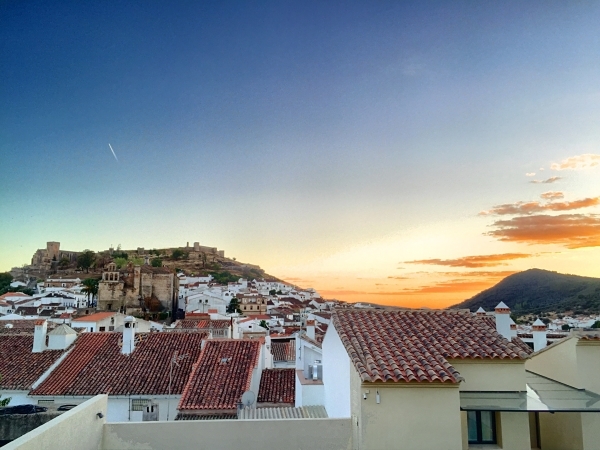
IN THE PHOTO: Town of Fuenteheridos in the Spanish province of Huelva, PHOTO CREDIT: AlmaNatura
We have a series on the 17 sustainable development goals decided by the United Nations in 2015. Goal 11 is “Making Cities and Human Settlements Inclusive, Safe, Resilient and Sustainable.” What advice can you give our readers (which include companies, students, NGOs and political institutions) for this goal to be achieved?
J.M: Our advice is to reflect on the importance of stopping. Stop and ask ourselves: Is this really what we want for our children? Is this the kind of planet we want to inherit? Do we really need so much to live? When you look at the world through the lenses of a person living in a rural area, where certain values have not yet been lost, you can see that their way of life is much more sustainable. Much less is needed if you live in a rural area. Would it be possible to extrapolate this to the urban world? I think so. The risk is that it could become like a superficial fashion and not the actual way of life, but if we actually commit to changing our communities we can achieve a better planet full of opportunities and justice for all human beings, wherever they live.
Recommended reading: “EMILY PILLOTON: TEACHING DESIGN FOR CHANGE”


